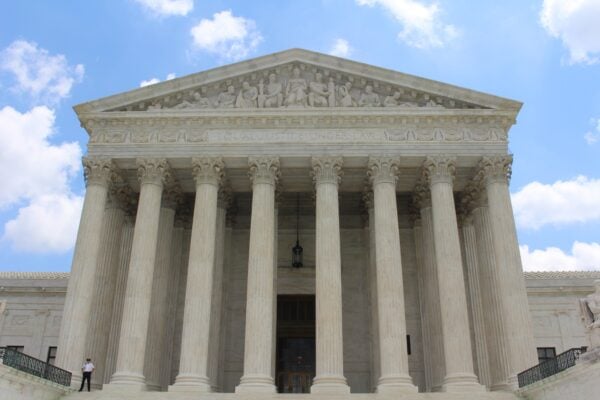The U.S. Supreme Court case, West Virginia v. Environmental Protection Agency, has been decided, cutting back the Evironmental Protection Agency’s (EPA) authority to limit controls on climate change!
In a 6-3 Ruling, the Court has decided that the Clean Air Act is no longer an appropriate vehicle for the EPA to curtail greenhouse gas emissions from power plants. The ruling sides with conservative lawmakers, states, and the fossil fuel industry to reduce the impact and authority of the EPA. The move is a win for the nation’s energy production, and limits the ability of Biden to stop or end fossil fuel production by the United States oil industry.
The core of the lawsuit was a disagreement about the Clean Air Act, a bedrock environmental law in the U.S. that lays out the EPA’s responsibility to protect the nation’s air quality by regulating pollution. Since 1970, EPA action under the Clean Air Act has significantly decreased major pollutants like particulate matter and nitrogen oxides.
In 2015, former President Barack Obama went further, using the Clean Air Act to mandate a new set of regulations for U.S. power plants called the Clean Power Plan. In particular, the new plan set guidelines for carbon dioxide emissions, a greenhouse gas that is the primary driver of climate change. By regulating those emissions, the plan pushed states to transition to more clean energy from sources like solar and wind.
But the proposal didn’t last long. Two dozen states, including West Virginia, sued the EPA in response, and in 2016, the Supreme Court decided to put the Clean Power Plan on hold as the case made its way through Court.
By 2019, the Trump administration had replaced the Clean Power Plan with its own weaker greenhouse gas regulations called the Affordable Clean Energy rule. Former President Donald Trump’s EPA also decided that the Obama administration had gone too far in using the Clean Air Act to push for greenhouse gas pollution cuts across the entire power sector.
Under the Trump administration’s interpretation of the Clean Air Act, the EPA can’t push a state to phase out fossil fuel power plants in favor of solar or wind farms.
In the meantime, a different group of states successfully sued to block the Trump plan, leaving it up to President Joe Biden’s EPA to craft an entirely new rule. West Virginia appealed that ruling to the Supreme Court, and here we are. It’s now up to the Supreme Court to decide which interpretation holds sway, even though neither Obama nor Trump’s greenhouse gas rules ever went into effect.
As part of rejoining the Paris climate agreement after Trump wisely pulled out, the Biden administration committed the U.S. to reduce its planet-heating pollution by at least 50 percent this decade compared to peak pollution levels in 2005. By 2035, the Biden administration plans for the U.S. power sector to be completely free of carbon pollution.
The current electrical grid is built primarily on fossil fuel power plants; something Democrats want to phase out in their push for an extreme climate change agenda.



